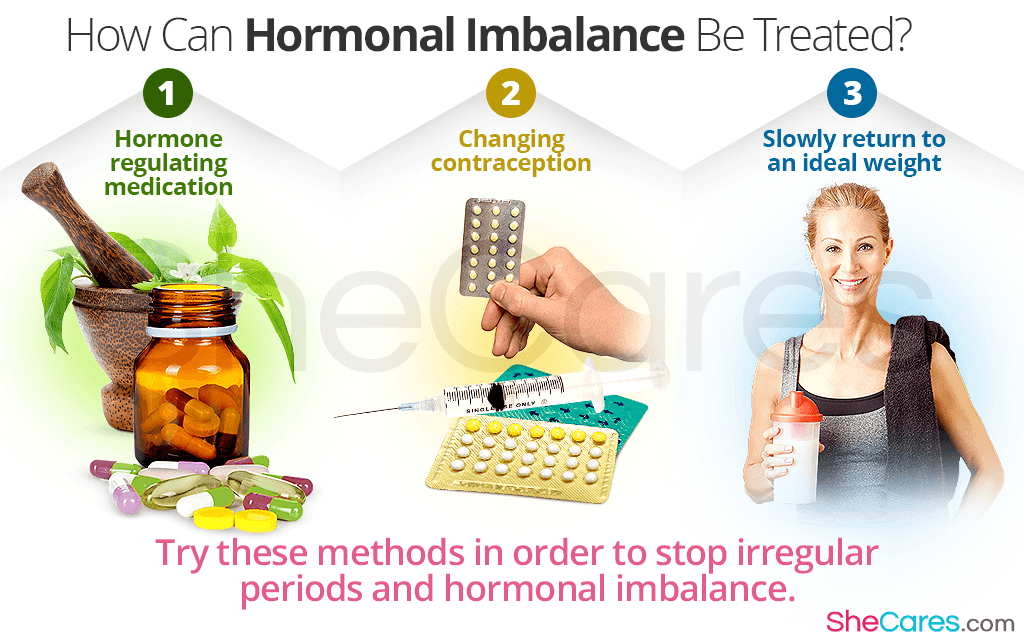Many of the causes of an irregular menstrual cycle can be attributed to hormonal factors. This is widely known and yet not fully understood by many women, and so it can be beneficial to enhance your knowledge about how hormones influence your periods, and why hormonal fluctuations can make a difference. With this understanding, you are also more likely to be able to treat irregular periods and hormonal imbalance, either with natural supplements or with prescribed medication.
Hormones and Periods
Your periods occurs each month because of the activity of several different hormones in the body, and how they interact with each other:
The follicle-stimulating hormone (FSH) is produced in the pituitary gland in the brain. It influences the growth of eggs in the ovaries, and also stimulates the secretion of another hormone - estrogen - in the ovaries, to prepare the body for pregnancy.
Estrogen ends the production of FSH, and in so doing ensures that only one egg can mature in the ovaries per cycle. It also provokes the production of the luteinizing hormone (LH), which also comes from the pituitary gland.
LH works in the body by stimulating the release of a mature egg from the ovary, on around day 14 of her cycle. This is the period of ovulation, during which more estrogen and also progesterone are produced in preparation for pregnancy.
After ovulation, if the egg has not been fertilized by a sperm, estrogen and progesterone levels fall, and the uterus lining that is not needed for pregnancy will be shed, this is what comprises the bleeding during your period.
Can Hormonal Imbalance Cause Irregular Periods?
Considering how these different hormones all effect each other, it should come as no surprise to know that if some are produced in a higher or lower quantity than usual, this can affect the state of the others - and therefore the menstrual cycle. Specifically, the presence of estrogen and progesterone have a significant impact, and fluctuations can cause irregular periods. These hormones levels can become imbalanced for a number of reasons, such as:
- Menopause
- Contraception
- Excessive weight loss or weight gain
How Can Hormonal Imbalance Be Treated?
Depending on the reason behind your particular case of hormonal imbalance, there are several ways the problem can be treated.
Hormone-regulating medication. There are a few different hormonal therapies - both natural and prescribed - that can be beneficial for reinstating the balance. These are especially popular among menopausal women as they can alleviate many menopausal symptoms in addition to irregular periods, but some of them are related to serious side effects.
Changing contraception. Many women will experience irregular periods during the first three months of using a different contraception such as the pill or injection. If these do not subside, it might be worth trying an alternative method in order to stop irregular periods.
Slowly return to a ideal weight. If you are experiencing irregular periods after having lost a lot of weight or gain weight excessively, it is advisable to try to return to a healthy weight. It is important not to shock your body by gaining weight too quickly or losing it, add dietary changes to your lifestyle and start with an exercise routine.
The menstrual cycle is a natural process which is controlled by the various hormones that are produced in different areas of the body. These all work together to prepare the body for pregnancy, or expel unnecessary uterus lining should pregnancy not occur. Knowledge of the interactions between them should help you to understand why periods can become irregular.


